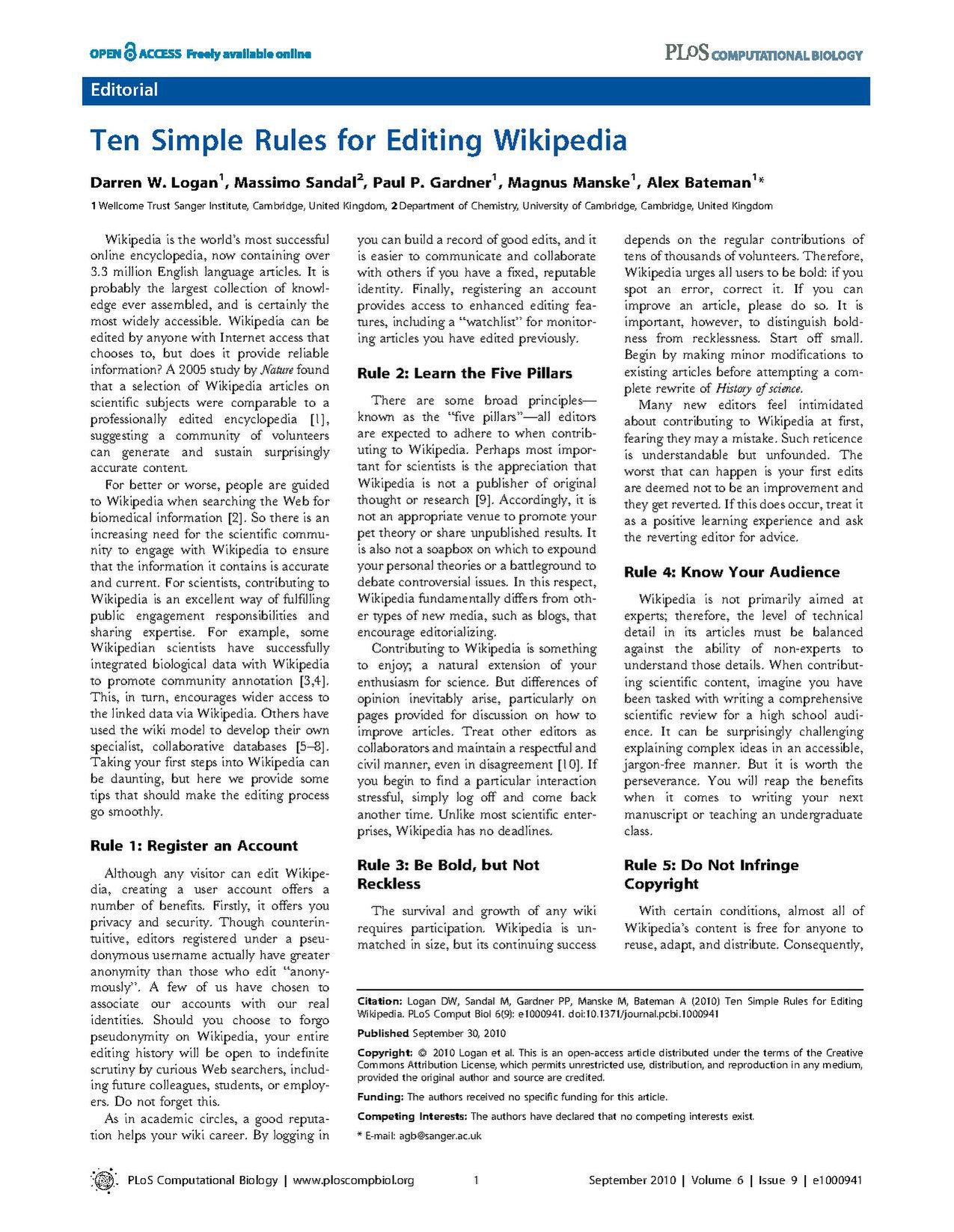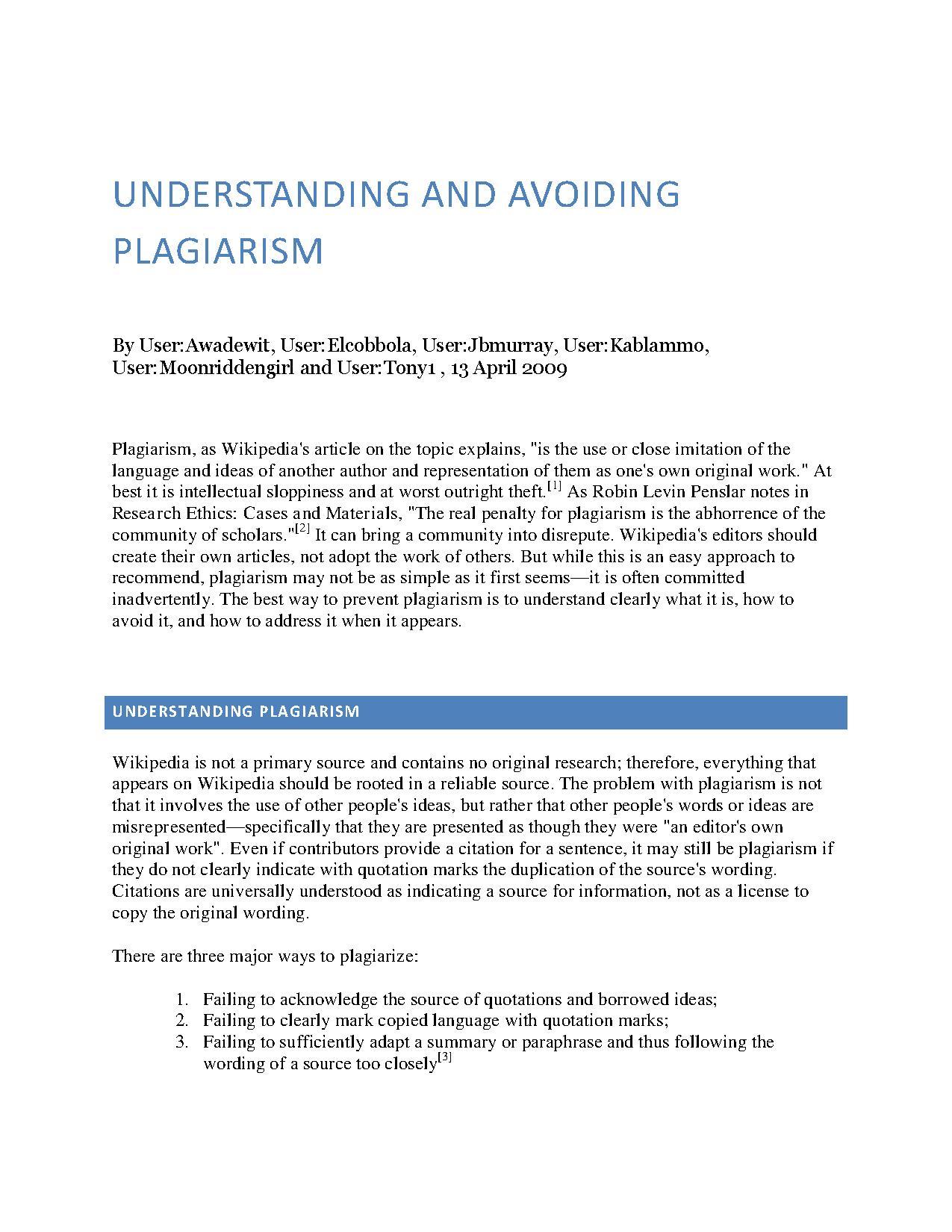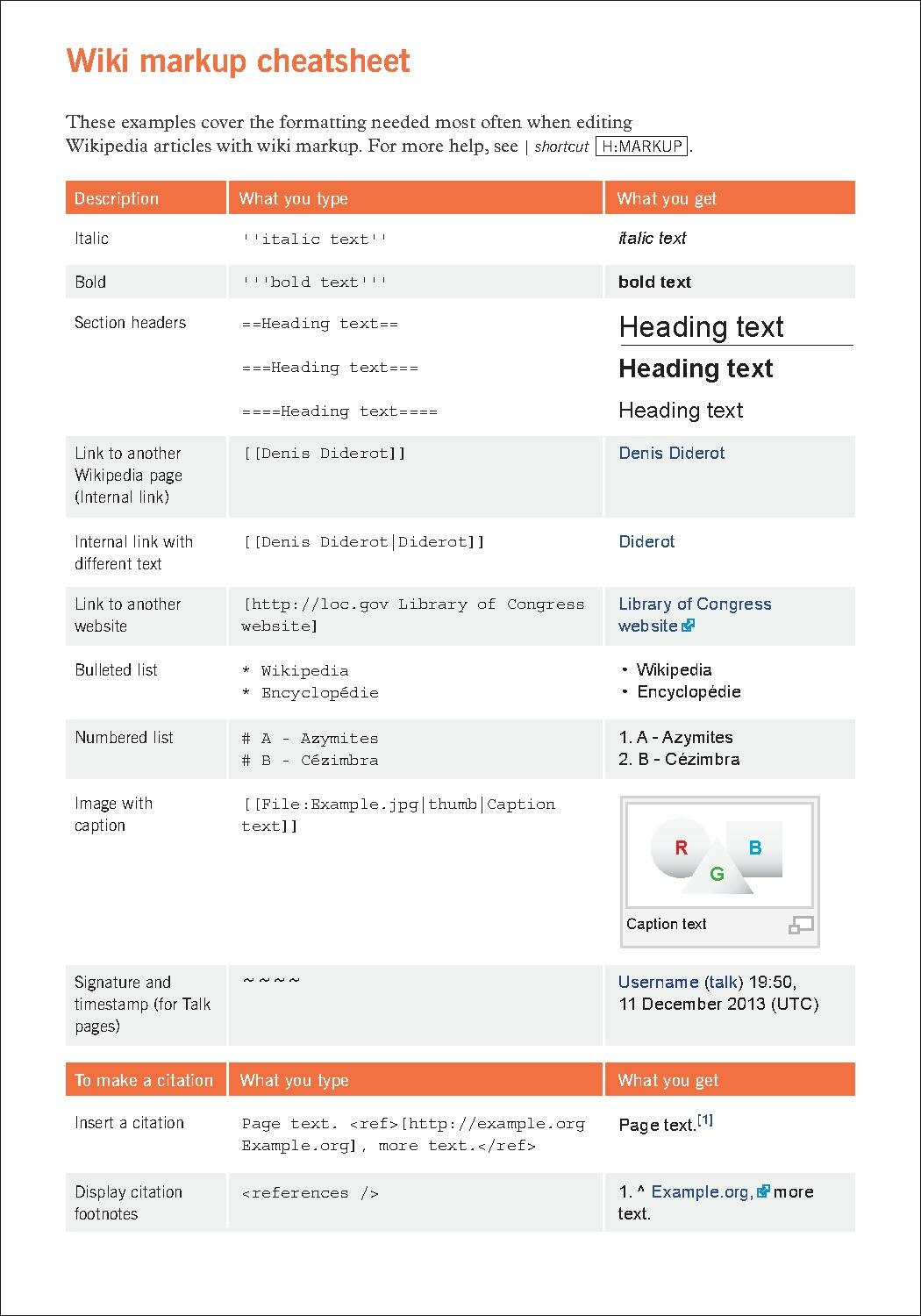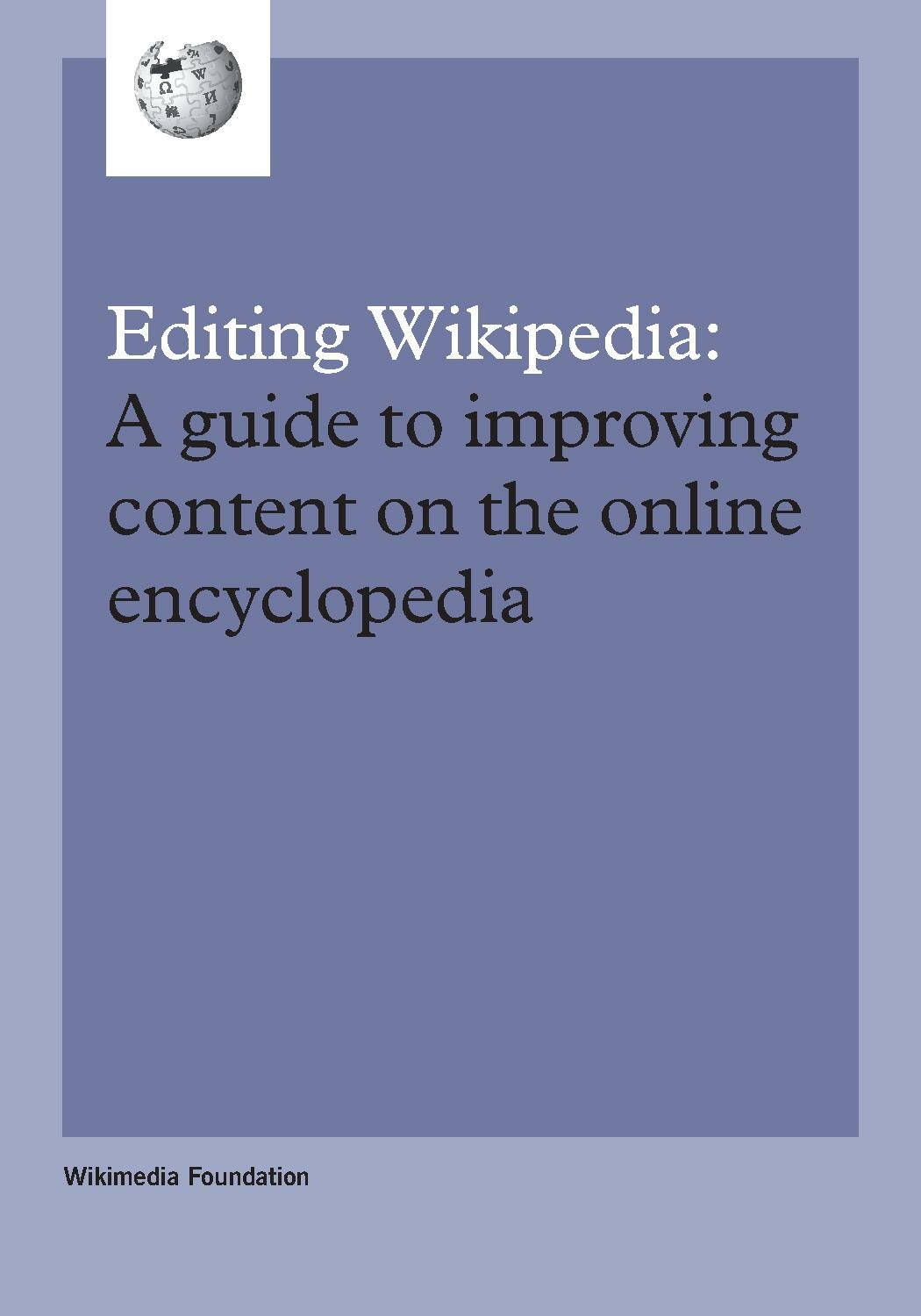Wikipedia:United States Education Program/Courses/New Media and Development (Anne Nelson)/Timeline
Appearance
Wikipedia Training
[edit]- Readings due before class (October 26)
- Read the New Yorker article on Wikipedia below: http://www.newyorker.com/archive/2006/07/31/060731fa_fact S
- See also: http://deletionpedia.dbatley.com/w/index.php?title=Main_Page. Check out a couple of deleted articles.
- View the 20-minute TED presentation by Jimmy Wales, founder of Wikipedia. Jimmy Wales on Wikipedia (TED talk, 20 minutes): http://www.ted.com/index.php/talks/jimmy_wales_on_the_birth_of_wikipedia.html
- Review the Web 2.0 introduction onhttp://www.columbia.edu/itc/sipa/nelson/newmediadev/Web%202.0%20and%20Social%20Networking.html
- Wikipedia's Campus Initiative http://www.pbs.org/mediashift/2011/07/wikipedia-taps-college-ambassadors-to-broaden-editor-base200.html
- Writing assignment
- Find a Wikipedia article that you could contribute to (or create). If you can work in a second language, find an article in that language's Wikipedia too. Write up to one page about what you propose to do and bring to class.
- In class
- Wednesday, October 26, 2011
- Presentation prepared by the class's Campus Ambassador (Mc3387), combining various presentations into one concise course, including:
- Introduction to Wikipedia
- Training on how to create username, edit an article and contribute content
- Basics of editing
- Anatomy of Wikipedia articles, what makes a good article, how to distinguish between good & bad articles
- Tips on finding the best articles to work on for class assignments
- Discussion of challenges (more below)
- Handouts given to class by Campus Ambassador during training
- Milestone
- All students have Wikipedia user accounts.
Post-Training Reflection
[edit]- Assignments (due November 9)
- Edit or write a Wikipedia entry. Enter. If you're doing a second language, do that too. Write up to one page on the experience and what happened to your entry.
- Write a one-page proposal for your individual 10-page paper. Describe topic, approach and possible sources.
Discussion
[edit]Analyzing Challenges, Student Feedback
[edit]- Assignment handed in November 9th (on a rolling basis until December 1st)
- Students' reactions to contributing to Wikipedia and feedback on what worked, possible improvements. Shared with Instructor and Campus Ambassador.
- Some highlights from the students' reflective essays (anonymous)
- Positive
- "In 2004 to 2007 when I was in undergraduate, professors from my college stated that Wikipedia was not a legitimate source because anyone can edit. After exploring the steps to create a page, the criteria for sources and the monitoring of the site, I believe that is the most accurate and up-to-date information present on the web."
- "Surprisingly, I did not find it very difficult to edit on Wikipedia."
- "Given that I do not think of myself as remotely technologically competent and had heard so much about the complexities of Wikipedia editing, I did not find it to be as difficult as anticipated; painfully nitpicky and time consuming, yes, but difficult, no. I was, however, struck with the level of pressure/responsibility I felt at the prospect of adding something to a Wikipedia article."
- "One of my greatest pleasures was to contribute to an article and feel that, through crowdsourcing, we can build a great database of knowledge and make it accessible to everyone (that has access to the Internet) on the planet. All in all, the Wikipedia's mission is compelling when you actually get hands on and experience the process."
- Negative
- Commentary of a Chinese student about the page "Jasmine Revolution of China" in both English and Chinese: There are not so many difference in these two language editions. Instead, in my opinion, they both fail to cover enough information." The student then listed the missing information that should be added, but then said, "I would not put such things in wiki though. First don't have time; Second, I think it would put some potential risk on my future plan."
- "The Wiki editing experience was far from intuitive. It is a shame that there isn't a 'basic' editor option for those not savvy with wiki markup. The challenge of editing a page, combined with the psychological hurdle that is feeling unjustified/under qualified to edit a world encyclopedia, can be quite discouraging."
- "I am surprised to experience the general lack of citations. Many pages seem to be in need of reliable sources and this unfortunately leaves its mark on the standard of Wikipedia-content as a whole. The encyclopedia is supposed to maintain the highest standards possible... but the level of verifiability on elements of even an essentiil page as "news" was poor. This gives evidence of a need for contributors who will improve already existing articles by adding citations to reliable sources. In my opinion though, writing new pages from scratch or even additional stubs is more exciting than sourcing other people's work. Hopefully Wikipedia can find a way to attract participators who think otherwise, because that seems to be the most critical point at the moment."
- "The challenging part was the citation. The Cite button in Wikipedia is not very practical to use, each time I wanted to cite, the button was not functioning, or it kept showing that there was an error in my citations. So I wasted a lot of time on this part."
- "I think there are too many pages of rules, too many codes to learn, and the volunteer peer review doesn't always work. It is unlikely that I will continue to contribute to Wikipedia. It's simply not worth the hassle."
- "I found it not comfortable to write in a lot of codes. And it is not easy to adjust to the right format. Considering I needed to write a lot, my interested to make this page better is not high. So eventually I just added some sentences and gave up."
- "I found the Wikipedia editing experience to be a little frustrating, to be honest. The user interface of the Wikipedia page isn't exactly intuitive for people not used to dealing with writing code, which I think makes the whole process a bit exclusive... I ran into some problems when I tried to cite information because as there were no previous references, there was no reference section. Instead of creating the section automatically when I added a citation, it gave me an incomprehensible error, and had it not been for Michelle's help, I wouldn't have been able to figure out that I need to create a space for citations before inserting one. I don't think I will continue to edit more articles unless I find egregious errors, or need to create a page from scratch at some point. I found the process too technical and cumbersome."
- "The main challenges I found when editing was getting used to the editing system: the look and feel of the webpage didn't seem very intuitive. Also, if I hadn't had the training during class, I would have had a hard time creating my user and figuring out the rule and policies. It doesn't look like a user-friendly system, though it is a very popular and has many users across the globe."
- "Especially as a first wikipedian editor, I was afraid “to do it wrong” so I preferred to do little and right than the contrary. I was glad Michelle took the time to explain to us step by step in class how to do the editing as I did not find the exercise user friendly/intuitive at all. I have to admit I would not have done it on my own and will probably not do it again unless there is a subject on which I believe I am the best to write about. In fact, I think it is time consuming and I do not feel I have a lot of added value for editing a page."
- "My experience of contributing content to the Wikipedia website was much laborious than I expected. First of all, the fact that a lengthy tutorial is needed to understand the structure of how Wikipedia functions and then following the steps that are needed to create an account are likely to produce a high opt-out rate of people who quickly begin to lose interest. Once I created my account I found that the way the dashboard is structured makes it difficult to navigate through the things you are looking to accomplish. It is not clear what are the steps that are needed to edit or create Wikipedia articles."








